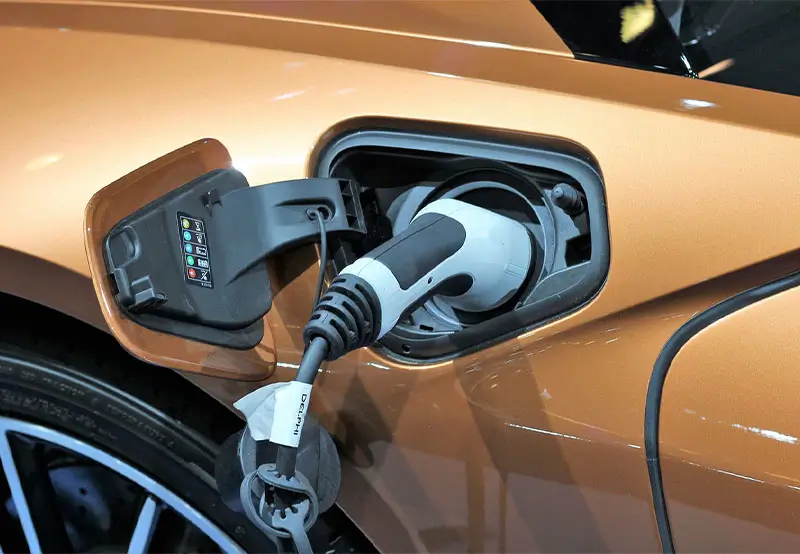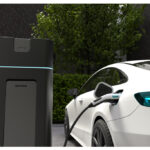How Electric Vehicles Are Transforming Auto Insurance
Electric vehicles (EVs) are increasingly getting onto roads all over the world, and besides transforming the automotive industry, they are also changing the world of auto insurance and risk management. From unique EV components to shifts in driver behavior, insurers are rethinking how policies are priced, how risks are assessed, and how claims are managed.

This blog post will dig deeper into why the emergence of EVs is transforming the insurance market and its implication to both the insurers and the customers. Whether you’re searching for EV insurance, curious about electric car insurance rates, or wondering if electric car insurance is cheaper, we’ve got you covered.
Why Electric Vehicles Require a Different Insurance Approach
- High Repair Costs – EV batteries and advanced electronics are expensive to repair or replace, leading to higher claim values.
- Battery-Specific Risks – Lithium-ion batteries pose risks like fire hazards, degradation, or replacement costs, requiring specialized coverage.
- Limited Repair Infrastructure – Fewer certified EV repair centers mean longer repair times and higher labor costs.
- Technology Integration – EVs use advanced sensors, telematics, and autonomous features, increasing repair complexity.
- Different Risk Profile – EVs have lower moving parts but higher exposure to unique risks compared to conventional vehicles.
- Environmental Benefits Incentives – Insurers may offer discounts or special plans to promote EV adoption.
- Residual Value Uncertainty – Fluctuating resale values and battery health impact long-term insurance planning.
Trends in Electric Car Insurance Rates
- Rising Premiums for EVs – Due to expensive batteries and advanced parts, EV insurance premiums are generally higher than conventional vehicles.
- Declining Costs Over Time – As EV adoption grows and repair networks expand, insurers are gradually adjusting rates downward.
- Government Incentives – Subsidies and eco-friendly policies encourage insurers to offer discounts for electric car owners.
- Usage-Based Insurance – Telematics and real-time monitoring help insurers design personalized plans, rewarding safe EV drivers.
- Battery Health Coverage – More insurers are including battery degradation and replacement as part of specialized EV coverage.
- Competitive Market Pressure – With increasing EV sales, insurers are introducing new products, leading to more affordable options in the future.
Is Electric Car Insurance Cheaper?
- Generally Higher Premiums – Electric car insurance is often more expensive than conventional vehicles due to costly batteries, specialized repairs, and limited service networks.
- Long-Term Savings – Despite higher premiums, EV owners save on fuel, maintenance, and tax benefits, which offsets insurance costs.
- Falling Rates with Adoption – As more insurers enter the EV market and repair costs normalize, premiums are expected to decrease.
- Discount Opportunities – Many insurers now offer eco-friendly discounts, telematics-based plans, or lower rates for safe EV drivers.
- Battery Coverage Factor – Policies covering battery replacement or degradation may add to the premium but provide long-term value.
Risk Management in the Age of Electric Cars
The insurance business is about risk management. And EVs are changing the risk landscape in a number of significant respects:
1. Lower Mechanical Failure Risk: The EVs also have smaller moving components, which minimizes a possible breakdown or mechanical inconvenience. This reduces chances of claims of engine problems or transmission problems.
2. Heightened threats of Cybersecurity: The risk of a cyberattack also increases as cars are connected more and more software-based. There is even some penetration in the inclusion of cyber risk coverage in EV policies by some insurers.
3. Battery Fires and Thermal Runaway: Although fire in batteries is unusual, they are more destructive than fires in gasoline and harder to control. The Risk management strategies are to consider:
- Preparedness in terms of emergency response
- Special fire fighting techniques
- Health surveillance of battery
4. Charging Infrastructure Risks: Filling procedures at public charging stations or the charger installed at the place of residence suggest new risks. For example:
- Who pays in case of damage in case of public charging?
- Home Chargers Are Home insurance or Auto insurance covered?
The distinct issues of EV should be considered by the specific risk management framework.
What Makes the Best Insurance for Electric Cars?
Take into account the following essential characteristics when looking for the best electric vehicle insurance:
- Battery coverage: For damage or degradation, including warranty gaps.
- EV roadside assistance: Specialized towing for electric drivetrains.
- Charging equipment coverage: For home chargers or mobile adapters.
- Cybersecurity and software updates: Coverage for software-related issues or hacks.
- Telematics discounts: Lower premiums for safe EV driving habits.
Insurers like Progressive, State Farm, Allstate, and specialty providers are developing new EV-focused products. Companies such as Tesla even offer their own branded insurance in certain markets.
The Role of Data and Telematics in EV Insurance
One of the biggest enablers of smarter ev insurance is real-time data collected through telematics.
EVs are essentially rolling computers. They can record everything from acceleration and braking patterns to charging behavior and GPS data. This helps insurers:
- Set accurate premiums based on usage
- Reduce fraud by verifying driving data
- Reward eco-friendly behavior with lower rates
As AI and data analytics evolve, expect even more dynamic and personalized EV insurance plans to emerge.
Emerging Trends and What to Expect in the Future
The future of EV insurance and risk management will be shaped by several key trends:
1. Autonomous EVs: Modern EVs are increasingly becoming self-driving. Insurance companies are examining the new models of liability and developers of pieces of software might be deemed as liable in a case of an accident rather than a driver.
2. Pay-Per-Mile Insurance: Pay-per-mile plans are becoming fashionable among urban EV drivers who do not drive many miles.
3. Climate and Sustainability Discounts: EVs are already cutting carbon emissions. Other insurers are giving discounts on the ownership of green vehicles, an additional incentive on being green.
4. Integration with Smart Cities: As cities grow smarter, infrastructure like V2G (vehicle-to-grid) charging, automated traffic control, and connected traffic systems will become part of the EV insurance ecosystem.
Final Thoughts
Electric vehicles are not just changing how we drive—they’re revolutionizing how we insure and manage automotive risk. From the introduction of telematics-driven pricing models to specialized coverage for high-tech EV components, the insurance industry is adapting to keep pace with this clean, connected, and complex automotive future.
If you’re considering an EV, it’s crucial to explore the evolving world of EV insurance and find the best insurance for electric cars that suits your driving style, budget, and risk profile. While electric car insurance rates may be higher upfront, the long-term benefits often outweigh the costs—especially as the industry matures and premiums become more competitive.
So the next time you wonder if electric car insurance is cheaper, remember: with the right knowledge and the right policy, it absolutely can be.
Frequently Asked Questions (FAQs)
While electric car insurance rates may initially seem higher due to the cost of EV components like the battery, premiums can vary based on factors like the vehicle model, your driving behavior, and the location. In some cases, electric car insurance can be cheaper than for traditional cars, especially when using telematics or eco-friendly discounts.
Several factors influence electric car insurance rates, including:
Make and model: High-end EVs like Teslas may have higher premiums.
Driver’s history: Safe driving can reduce your premium.
Location: Urban areas with more traffic or accidents may result in higher premiums.
EV-specific coverage: Options like battery replacement coverage can increase costs.
Yes, since the EV battery is one of the most expensive components of an electric vehicle, it’s essential to have specialized coverage for battery damage or degradation. Many insurance policies now offer battery coverage as part of comprehensive plans.
Yes! Many insurers offer discounts for eco-friendly vehicles like EVs, including:
Green vehicle discounts for driving a low-emission car
Telematics-based discounts for safe and low-mileage drivers
Bundling discounts when combining home and auto insurance
Telematics—devices that track driving behavior—can have a significant impact on your EV insurance rates. By tracking factors like speed, braking patterns, and overall driving habits, insurers can offer personalized premiums based on actual driving behavior. Safe drivers can benefit from lower rates.












